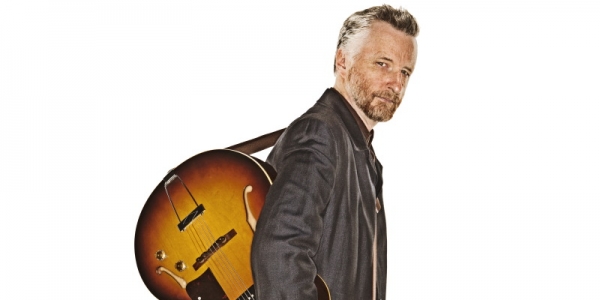The softly-spoken young man from Washington state is an exceptionally unlikely troublemaker. In many ways, the strength of his opinions concerning the quality of pop music is a product of circumstance. Over the last six months the hype around him has grown: he’s now internationally touted as part of the next wave of successors to Stevie Wonder and Marvin Gaye. “Oh my goodness, what’s happening right now is so foreign to me,” Stone admits. “There are people talking about my music in ways I never even began to imagine. I’m sitting here, in a hotel room, surrounded by my band, and talking to journalists from all over the world. The momentum of it is crazy. Good crazy.”
Things were much simpler where Stone grew up, in the tiny rural town of Chewelah, near the Idaho border. His father was a preacher, and it was through involvement in church choirs that he first became interested in singing and performance. “I was pretty sheltered growing up,” he says. “I had a great childhood, but it’s crazy to think that there are more people buying tickets to one of my shows now than the entire population of my hometown.”
Stone survived on a diet of gospel music from his home and church until his teenage years. Once he heard classic recordings by Bill Withers and Aretha Franklin, and in particular Wonder’s classic album Innervisions, he was hooked. He left home and attended Bible college for a year, but ultimately decided that his calling lay elsewhere. “I understand the importance of religion. I get that it’s a part of most people’s lives. I just think that your version of religion – which is obviously based on the beliefs that are important to you – is what it is. Some people drink a 24-pack of beer and watch the football, and some people take communion. It’s whatever you need it to be.”
Reviews of Stone’s live performances rush to note the preacher persona Stone inhabits onstage. It’s an understandable touchstone of the genre, and one that audience members have praised for its transformative effect; his gigs convert sweaty band-rooms into shared spaces to attack Christian hypocrisy and to worship the audience’s shared, hopeless optimism.
“I’m really not aware that I seem to be ‘preaching’,” says Stone. “That’s just how I learned to sing songs. I’ve always had a love for music, and I grew up watching my dad on stage and in the church. It naturally just comes out of me that way. Both my dad and my brother are ministers, and the reality is that when they’re up on the pulpit, they’re entertainers. They might be communicating a different message to mine, but we’re all entertainers.”
Stone has self-released two albums – 2010’s Last To Speak and 2011’s self-titled effort, which was re-released by ATO last year (and in March 2013 through Universal Music Australia) – and has developed a fanbase through relentless touring across America. “I’ve been travelling and performing since I was 19-years-old,” he says. “I’ve played almost 50 shows a year for six years, and about 350 shows in the last two years.”
Many of those shows have been in small rooms in the homes of fans, and his current success was largely generated by a clip of him performing his song Unaware in his mother’s living room. The video went viral, eventually catching the attention of late night television host Conan O’Brien and then being picked up by Ellen Degeneres. Both invited Stone and his band to appear on their respective shows, increasing his presence in even more living rooms. When we speak, his band is holed up in a Los Angeles hotel following their performance on Ellen – another experience that he describes as “good crazy”.
“It’s one more thing that we’ve all done together in this crazy year. Thankfully they’re the kind of people who would slap me across the noggin if I needed to be brought back into the game,” Stone says. “I regard the band as my family now. Families get in each other’s faces and annoy each other because they share so much, and do it all frequently. The other side of that is it means you grow a lot. And then there’s the fact that they’re great musicians: it wouldn’t be possible to tour as much as we do if they weren’t such talented players.”
BY BENJAMIN COOPER







